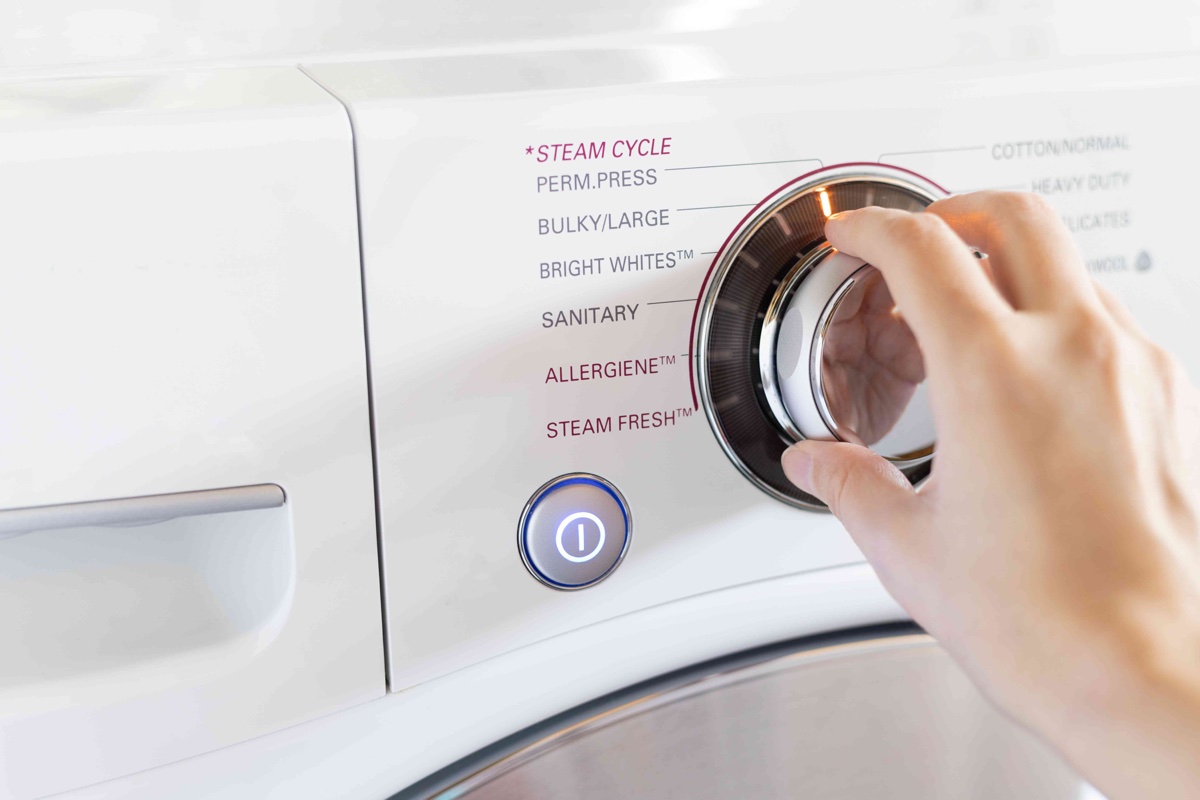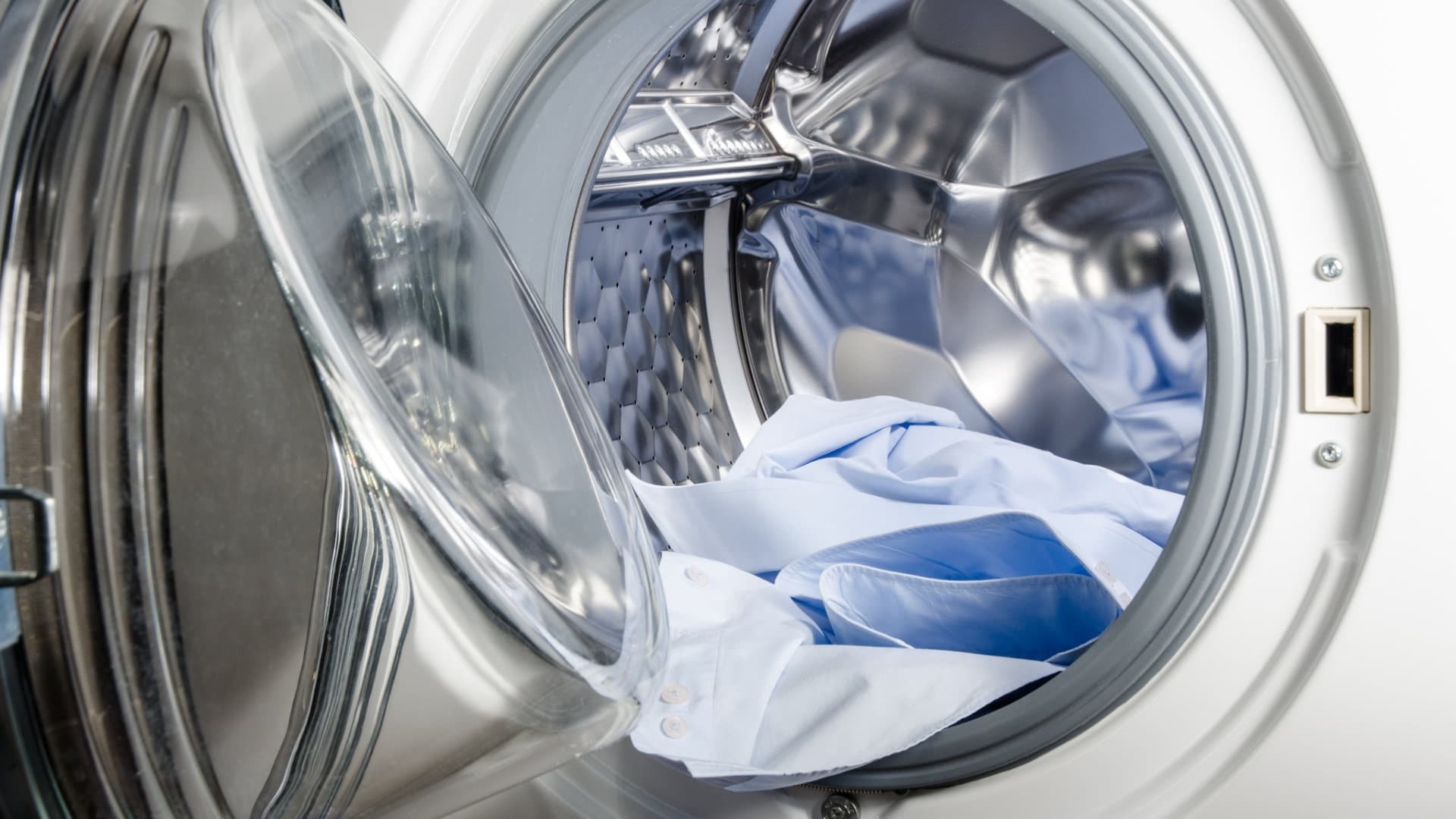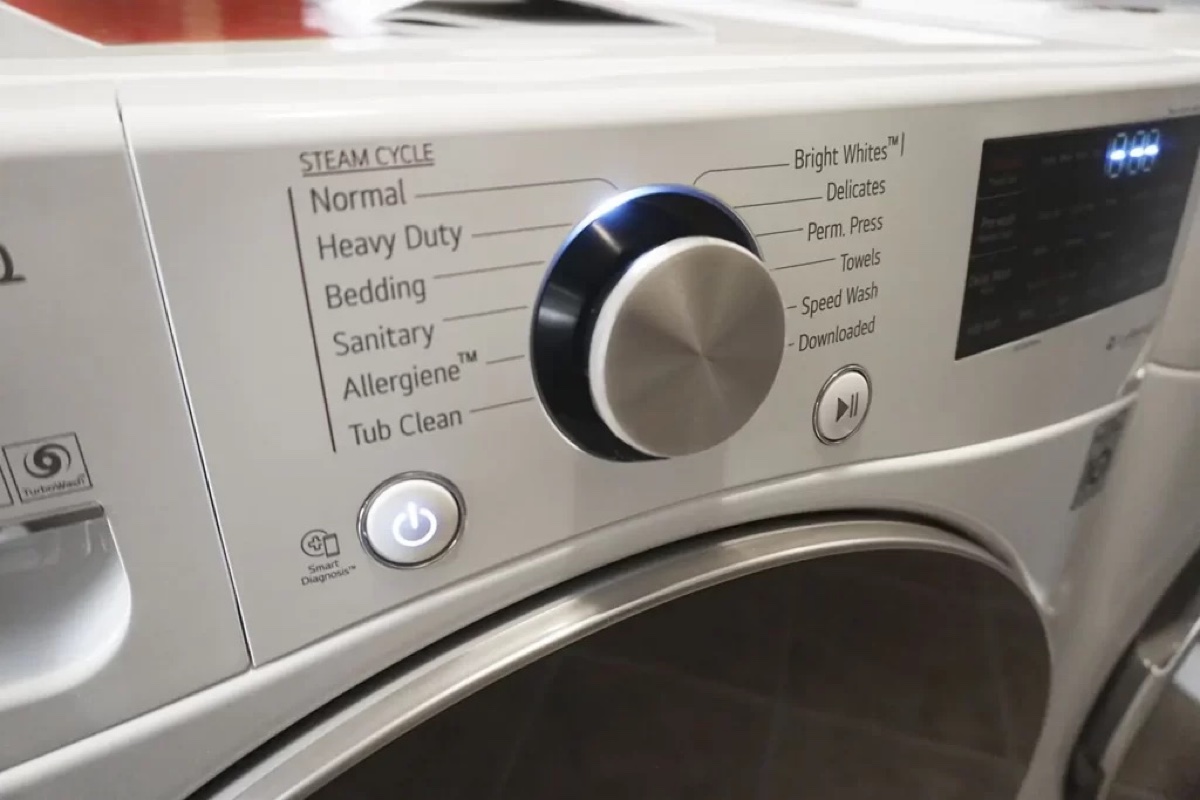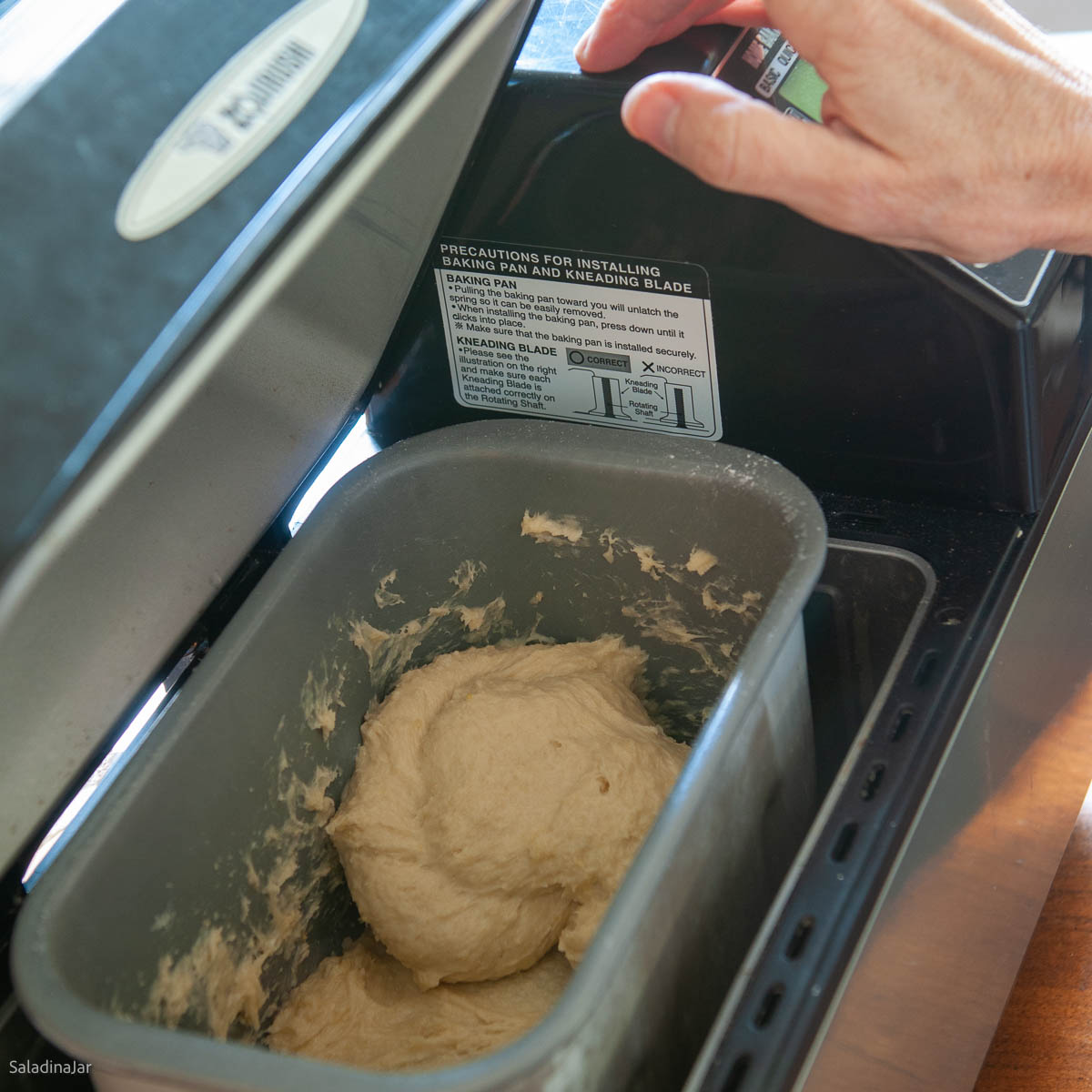Home>Home Appliances>Laundry Appliances>How Long Is A Rinse Cycle On A Washing Machine


Laundry Appliances
How Long Is A Rinse Cycle On A Washing Machine
Modified: August 23, 2024
Discover the ideal rinse cycle duration for your laundry appliances. Learn how long a rinse cycle typically lasts on a washing machine and optimize your laundry routine.
(Many of the links in this article redirect to a specific reviewed product. Your purchase of these products through affiliate links helps to generate commission for Storables.com, at no extra cost. Learn more)
Understanding the Rinse Cycle
The rinse cycle of a washing machine is a crucial part of the laundry process, playing a pivotal role in ensuring that clothes are thoroughly cleaned and free from detergent residue. This cycle follows the main wash and is designed to remove any remaining detergent, minerals, and impurities from the fabric, leaving the clothes fresh and clean.
During the rinse cycle, the washing machine fills with clean water and agitates the clothes to dislodge any remaining dirt and detergent. The water is then drained, and the process is repeated to ensure that the clothes are thoroughly rinsed. This cycle is essential for individuals with sensitive skin or allergies, as it helps to minimize skin irritation caused by detergent residue.
Understanding the rinse cycle involves recognizing its significance in achieving clean and fresh-smelling laundry. By comprehending the mechanics of this cycle, individuals can appreciate the importance of allowing the washing machine to complete the entire rinse process. This understanding empowers users to make informed decisions about their laundry care routine, ultimately leading to better results and prolonged garment lifespan.
In summary, the rinse cycle is a vital component of the laundry process, ensuring that clothes are thoroughly cleansed of detergent and impurities. By comprehending the purpose and mechanics of this cycle, individuals can optimize their laundry routine for superior results.
Key Takeaways:
- The rinse cycle in a washing machine is crucial for removing detergent and dirt from clothes, ensuring they are clean and comfortable to wear. Factors like water temperature and detergent type can affect the cycle length.
- To shorten the rinse cycle, use high-efficiency detergent, pre-treat stains, and avoid overloading the machine. Proper rinsing preserves clothing quality and reduces the risk of skin irritation.
Factors Affecting Rinse Cycle Length
The duration of the rinse cycle on a washing machine can vary significantly based on several factors. Understanding these factors is essential for optimizing the laundry process and achieving efficient and effective results. Here are the key elements that can influence the length of the rinse cycle:
1. Water Temperature
The temperature of the rinse water can impact the duration of the rinse cycle. Warmer water can help dissolve detergent and mineral residues more effectively, potentially shortening the rinse cycle. However, if the washing machine is programmed to heat the water during the rinse cycle, this can extend the overall duration.
2. Detergent Type and Quantity
The type and amount of detergent used in the initial wash cycle can affect the rinse cycle length. Excessive detergent or certain types of detergent that produce more suds may require additional rinsing to ensure thorough removal. Using the appropriate amount of low-sudsing detergent can contribute to a shorter rinse cycle.
3. Fabric and Soil Level
The type of fabric being laundered and the level of soil or stains present on the clothes can impact the rinse cycle duration. Heavily soiled items or those made from materials that tend to hold onto detergent may necessitate longer rinsing to achieve optimal cleanliness.
Read more: How Long Is Spin Cycle On Washer
4. Water Quality
The quality of the water supply can influence the rinse cycle length. Hard water, which contains higher levels of minerals such as calcium and magnesium, may require more rinsing to eliminate detergent and mineral residues from the fabric. In contrast, softer water may facilitate quicker rinsing.
5. Washer Efficiency and Load Size
The efficiency and capacity of the washing machine, as well as the size of the laundry load, can affect the rinse cycle duration. High-efficiency machines with advanced rinsing capabilities may complete the cycle more efficiently, while larger loads might require extended rinsing to ensure thorough coverage.
6. Rinse Cycle Settings
Some washing machines offer customizable rinse cycle settings, allowing users to select options such as extra rinse or extended rinse. These settings can directly impact the length of the rinse cycle, providing flexibility based on specific laundry needs.
By considering these factors, individuals can gain insight into the variables that influence the rinse cycle length. This understanding empowers users to make informed decisions when preparing their laundry, ultimately contributing to more efficient and effective washing processes.
Tips for Shortening Rinse Cycle Time
-
Use High-Efficiency Detergent: Opt for high-efficiency (HE) detergent specifically formulated for modern washing machines. These detergents are designed to produce fewer suds, allowing for quicker rinsing and reducing the need for prolonged rinse cycles.
-
Pre-treat Stains: Addressing stains and heavily soiled areas before starting the wash cycle can minimize the need for extended rinsing. Pre-treating stains with a targeted stain remover or a gentle rub with detergent can help ensure that the rinse cycle is more efficient.
-
Avoid Overloading the Machine: Overloading the washing machine can hinder the effectiveness of the rinse cycle, as it may struggle to thoroughly rinse all items in a single cycle. By adhering to recommended load sizes, the machine can efficiently complete the rinse process without the need for additional cycles.
-
Select the Appropriate Water Temperature: Choosing the right water temperature for the rinse cycle can impact its duration. In many cases, using cold water for the rinse can be effective, as it helps conserve energy and may result in a shorter cycle compared to using warm or hot water.
-
Utilize the Correct Rinse Cycle Setting: Some washing machines offer customizable rinse cycle settings, such as a quick rinse or a single rinse option. Selecting the appropriate setting based on the specific laundry load can help expedite the rinse cycle without compromising cleanliness.
-
Maintain the Washing Machine: Regular maintenance of the washing machine, including cleaning the detergent dispenser, lint filter, and ensuring proper drainage, can contribute to efficient rinsing. A well-maintained machine is more likely to perform optimally, potentially shortening the rinse cycle time.
-
Consider Water Softening Solutions: If hard water is a concern, using water softening agents or installing a water softener can help reduce mineral buildup on clothes, potentially leading to shorter rinse cycles.
-
Opt for Quick Wash Programs: Some modern washing machines feature quick wash programs that incorporate shorter rinse cycles. When suitable for the laundry load, utilizing these programs can significantly reduce rinse cycle time without compromising cleanliness.
By implementing these tips, individuals can effectively shorten the rinse cycle time without sacrificing the cleanliness and freshness of their laundry. These practical strategies empower users to optimize their washing routines, saving time and energy while achieving outstanding results.
Read more: How Long Does A Washing Machine Cycle Take
Importance of a Proper Rinse Cycle
The significance of a proper rinse cycle in a washing machine cannot be overstated, as it directly impacts the cleanliness, comfort, and longevity of clothing. A thorough rinse cycle serves as the final step in the laundering process, ensuring that all traces of detergent, soil, and impurities are effectively removed from the fabric. This critical stage plays a pivotal role in preserving the integrity of garments and safeguarding the well-being of individuals who wear them.
First and foremost, a proper rinse cycle contributes to the removal of residual detergent from clothing. While detergent is essential for cleansing, excessive or lingering detergent can lead to skin irritation, especially for individuals with sensitive skin or allergies. By thoroughly rinsing away all traces of detergent, the rinse cycle helps minimize the risk of skin discomfort and allergic reactions, promoting a more comfortable wearing experience.
Moreover, the removal of soil and impurities during the rinse cycle is essential for maintaining the cleanliness and freshness of clothing. Whether it's everyday attire, delicate fabrics, or heavily soiled items, a comprehensive rinse ensures that garments emerge from the washing machine free from dirt, grime, and any lingering odors. This not only enhances the visual appeal of the clothing but also contributes to a hygienic and pleasant wearing experience.
Furthermore, a proper rinse cycle plays a crucial role in preserving the longevity of clothing. By effectively eliminating detergent and impurities, the rinse cycle helps prevent residue buildup within the fabric fibers. This, in turn, reduces the risk of discoloration, fabric deterioration, and premature wear, ultimately extending the lifespan of garments. Additionally, thorough rinsing can contribute to maintaining the vibrancy and softness of fabrics, ensuring that clothing retains its original quality over time.
In summary, the importance of a proper rinse cycle in a washing machine extends beyond mere cleanliness. It encompasses the well-being of individuals who wear the clothing, the preservation of garment integrity, and the overall quality of the laundry. By recognizing the pivotal role of the rinse cycle and prioritizing its effectiveness, individuals can elevate their laundry care practices, resulting in impeccably clean, comfortable, and long-lasting clothing.
Frequently Asked Questions about How Long Is A Rinse Cycle On A Washing Machine
Was this page helpful?
At Storables.com, we guarantee accurate and reliable information. Our content, validated by Expert Board Contributors, is crafted following stringent Editorial Policies. We're committed to providing you with well-researched, expert-backed insights for all your informational needs.














0 thoughts on “How Long Is A Rinse Cycle On A Washing Machine”